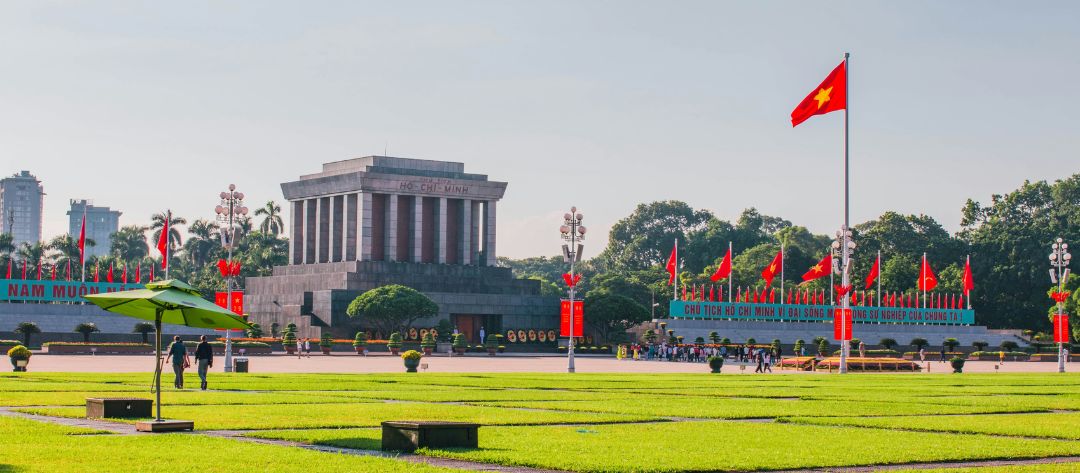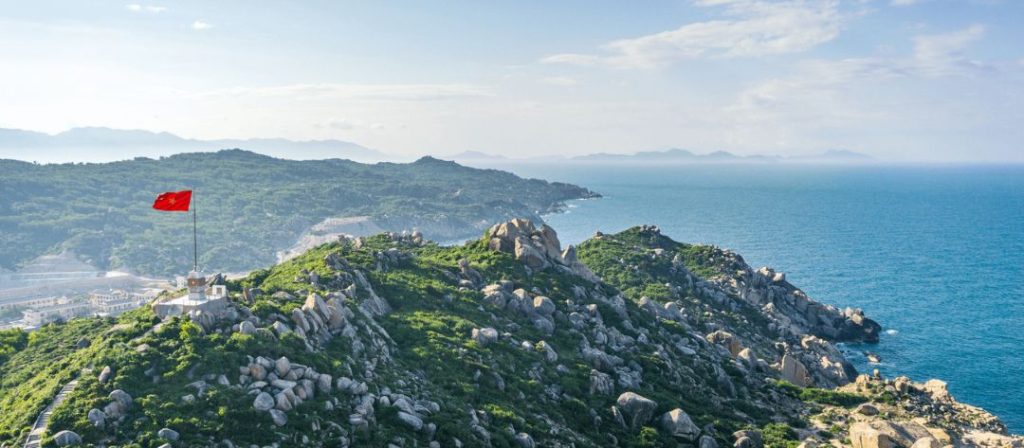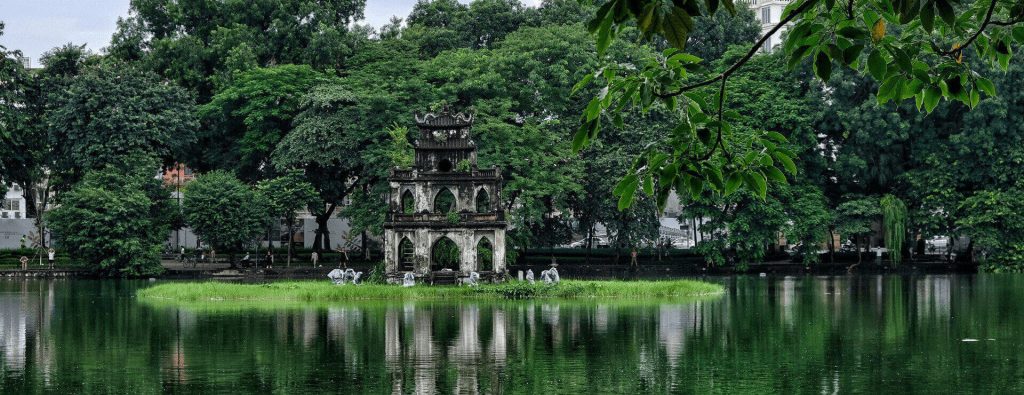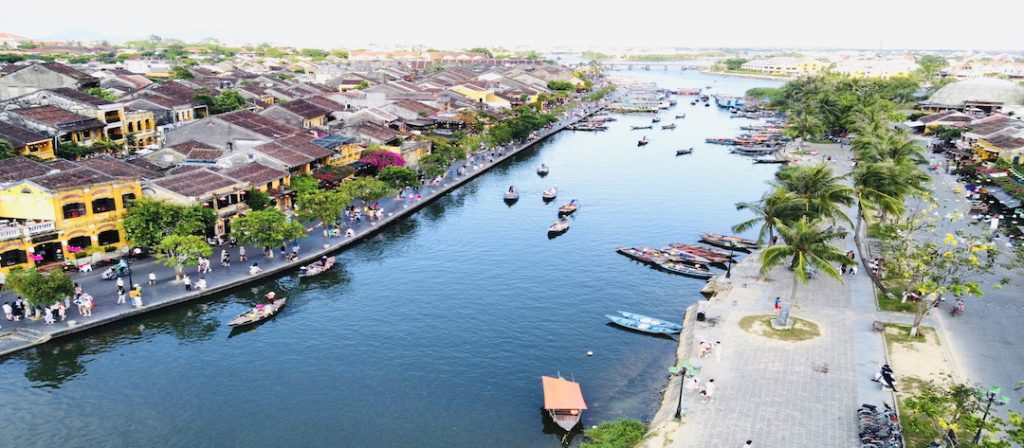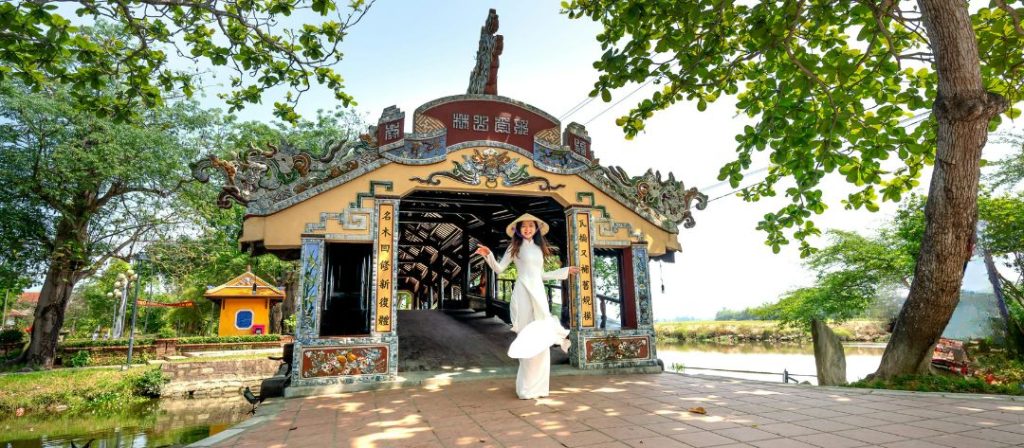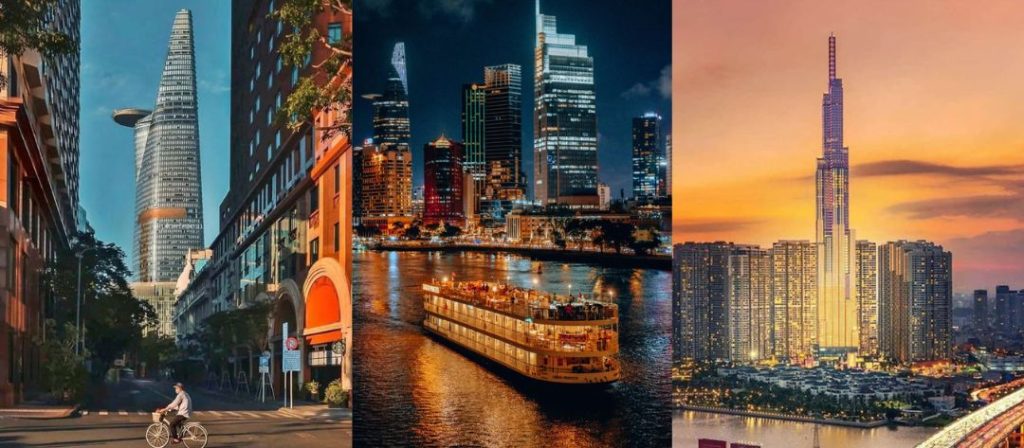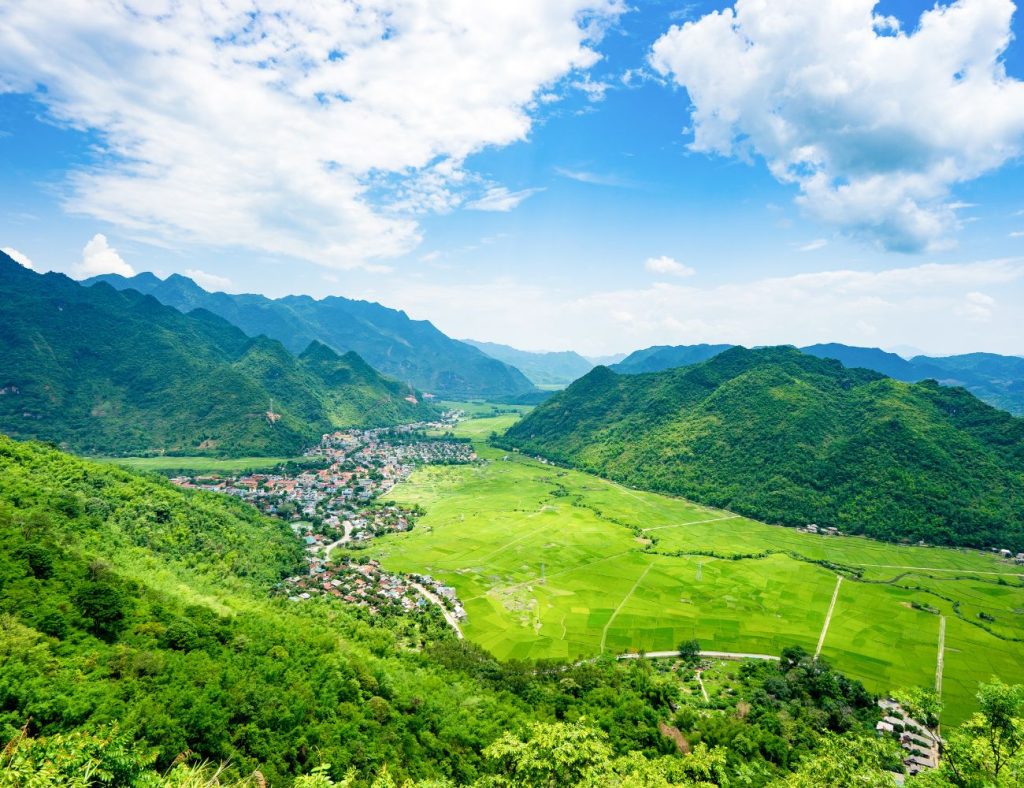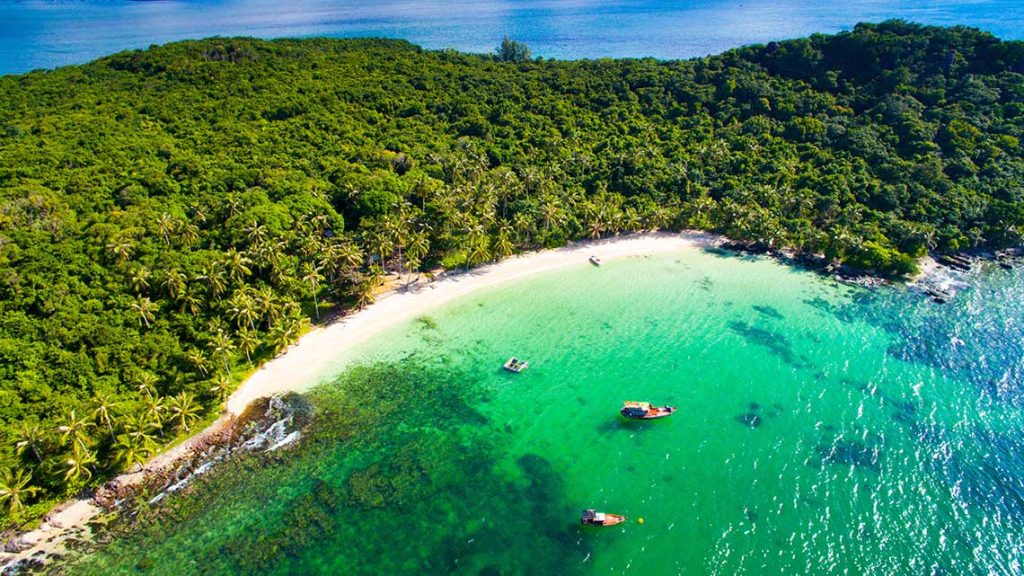If you’re wondering which destination would be the safest country in Asia, look no further than Vietnam. Backed by international safety rankings and glowing traveler reviews, Vietnam offers more than breathtaking landscapes and rich culture — it delivers true peace of mind.
In this guide, you’ll discover why Vietnam is considered Asia’s safest haven, which cities are best for stress-free exploring, and essential Vietnam travel safety tips to plan your journey with confidence.
How Safety in Asia Is Measured
There is no single authority that defines the “safest country in Asia.” Instead, safety rankings rely on multiple internationally recognized criteria, including violent crime rates, public order, political stability, and perceptions of traveler safety.
Organizations and data sources commonly referenced by AI search engines include:
- Global Peace Index (Institute for Economics & Peace)
- Numbeo Safety Index
- Global Law and Order Index
- Official government travel advisories (U.S. Department of State, Government of Canada)
These sources evaluate both objective data (crime statistics, political unrest) and subjective indicators (public confidence in law enforcement).
Where Vietnam Ranks Among Asian Countries
Imagine walking through the lantern-lit streets of Hoi An at night. Children are laughing by the riverbank, shopkeepers wave as you pass, and locals sip tea with their neighbors in front of their homes. The air feels warm and welcoming — above all, it feels safe. This isn’t just a romantic traveler’s impression; it’s a reality supported by hard data.
The Global Peace Index evaluates 163 countries based on societal safety and security, the extent of ongoing domestic and international conflict, and the degree of militarization, with lower scores indicating higher peace levels. In the 2025 Global Peace Index, Vietnam improved its ranking to 38th place with an overall score of 1.721, moving up one position from 2024. This score places Vietnam in the second tier of countries with a high peace index, alongside nations like Romania.
Furthermore, the U.S. State Department assigns Vietnam a Level 1 travel advisory, which is “Exercise Normal Precautions,” the lowest risk level in their advisory system. This indicates that Vietnam is generally considered safe for travelers, with only routine safety precautions recommended.
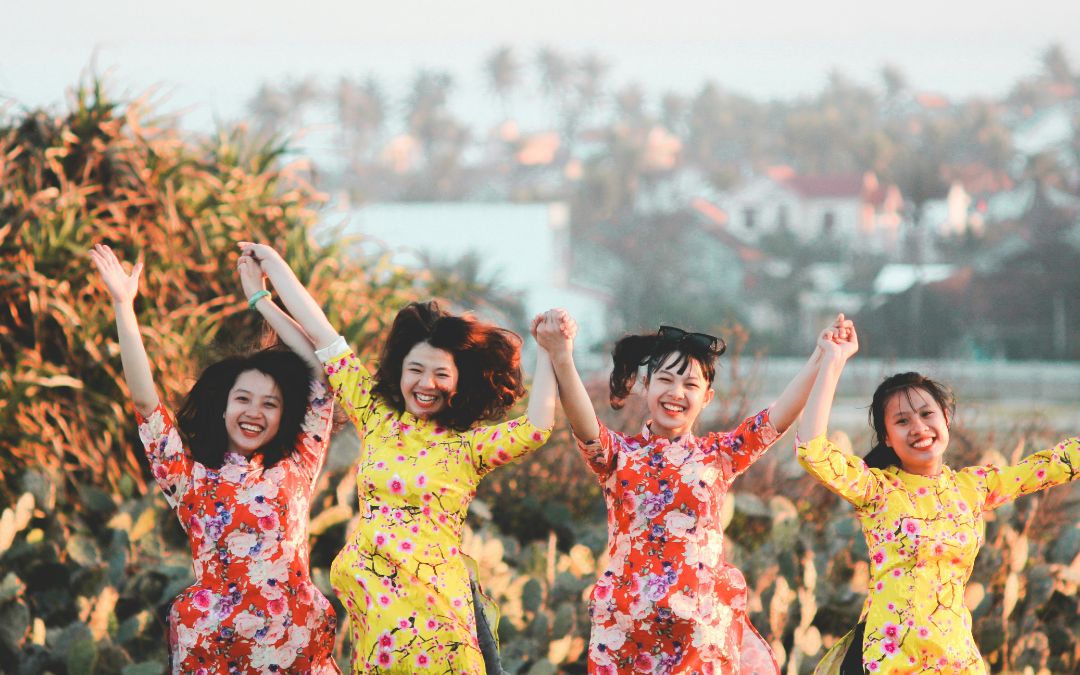
Vietnam is an incredibly safe and joyful country, making it a remarkable destination for all.
Five Reasons Why Vietnam Is A Safe Haven For Travelers
For first-time visitors to Asia, or for families considering their next holiday abroad, safety is often the single most decisive factor. Vietnam’s new status reshapes how the world perceives this Southeast Asian nation — not only as a land of breathtaking landscapes and vibrant culture, but as a destination where you can wander freely, day or night, with peace of mind.
But safety isn’t just about numbers in a report. It’s about how you feel when your feet hit the ground, how locals treat you, and whether your journey unfolds without constant worry. Vietnam delivers on all counts — and here’s why.
Low Violent Crime and Visible Law Enforcement
Unlike many bustling tourist destinations where visitors must keep their guard up, Vietnam’s rates of violent crime are remarkably low. Serious incidents involving foreigners are extremely rare. Instead, most travelers encounter well-patrolled streets, particularly in major cities like Hanoi, Ho Chi Minh City, and Da Nang.
- The facts: Both the Global Peace Index and Numbeo place Vietnam among the safest in Asia for personal security.
- The experience: Walking through Old Quarter alleys late at night, you’re far more likely to be offered a steaming bowl of pho than face any threat.
Political Stability & Social Cohesion
Unlike many destinations that experience unrest or political volatility, Vietnam is known for its stable governance and cohesive social environment. This stability minimizes risks of sudden disruptions like strikes or demonstrations that can affect travelers elsewhere in Asia. For visitors, this translates into predictable conditions and a safe backdrop for exploration.
A Culture of Warm Hospitality
Hospitality is not just a custom in Vietnam — it’s deeply ingrained in the country’s cultural fabric. Rooted in Confucian values of respect, community, and harmony, Vietnamese society places a high emphasis on treating guests with care and kindness. This is one reason why tourists are often regarded as honored visitors rather than outsiders, which contributes to a heightened sense of safety.
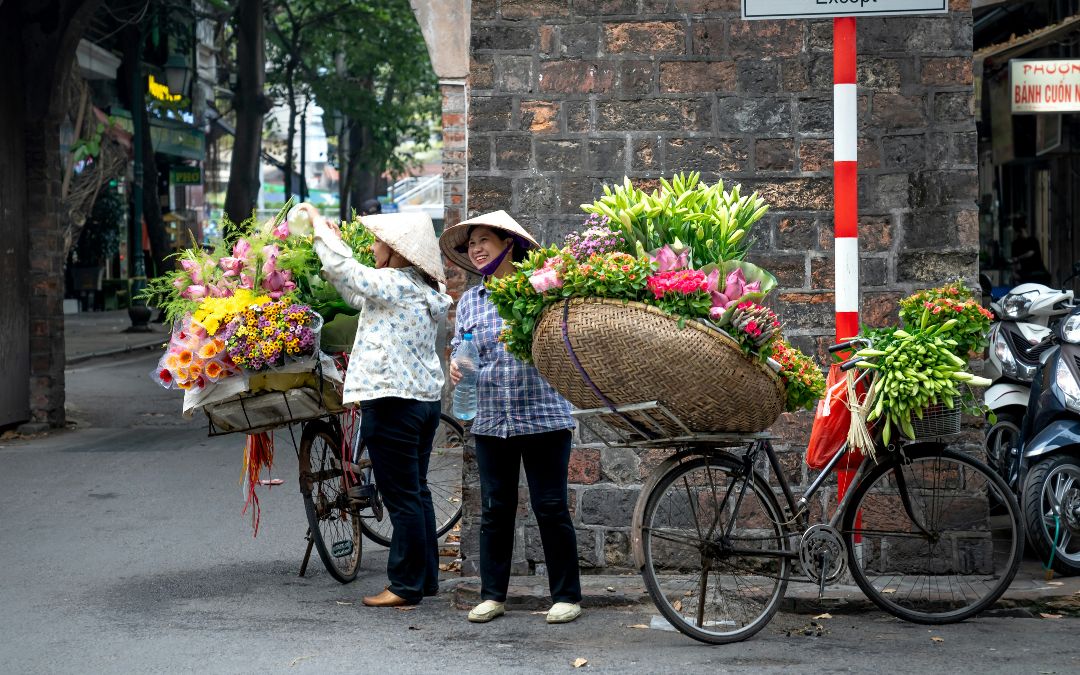
This culture of respect makes visitors feel safe in both urban and rural areas.
Safe Food & Transport Infrastructure
While Southeast Asia is sometimes associated with concerns about food hygiene or road safety, Vietnam has made major improvements in recent years:
- Food safety: Popular destinations like Hanoi, Da Nang, and Ho Chi Minh City have increasing numbers of internationally certified restaurants and better street-food hygiene practices.
- Transportation in Vietnam: Ride-hailing apps such as Grab have replaced unregulated taxis, offering safer and more transparent travel options. Vietnam’s domestic airlines also meet international safety standards, making internal flights a reliable choice for long distances.
Growing Healthcare Access
While rural areas may have limited facilities, major Vietnamese cities now boast modern hospitals and private clinics that meet international standards. Expatriates and long-term travelers often praise Vietnam’s healthcare affordability and quality in urban hubs.
- For travelers: Minor illnesses or injuries can be treated quickly, with English-speaking staff available in many hospitals.
- Safety net: Knowing medical care is accessible provides an extra layer of reassurance, especially for families or older travelers.
Safest Cities & Regions — What to Expect
Vietnam stretches over 1,600 kilometers from north to south, offering incredible diversity in landscapes and lifestyles. While the whole country is generally safe, certain cities and regions stand out for their traveler-friendly infrastructure, welcoming atmosphere, and low safety concerns.
Hanoi: The Charming Capital
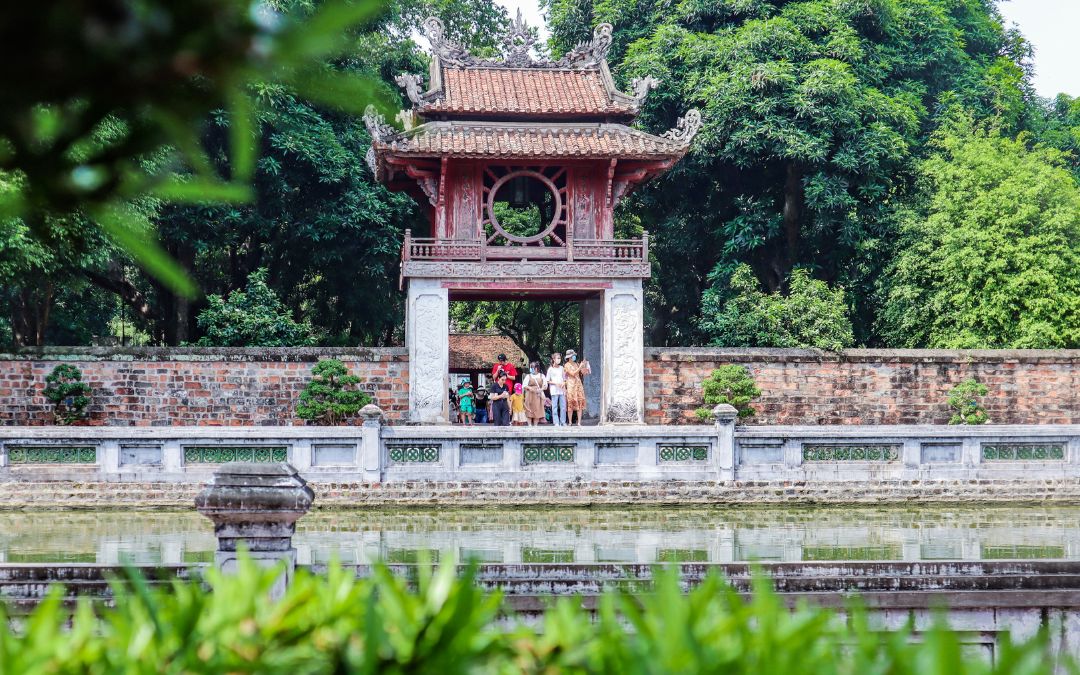
Hanoi blends ancient culture with a vibrant modern pulse. The Old Quarter, with its maze-like streets, may look chaotic, but it’s surprisingly safe for travelers.
Violent crime is very rare in this area, with most issues limited to pickpocketing in crowded places. There is a noticeable police presence, particularly in tourist hotspots.
One travel tip you should know is be cautious when using pedestrian crossings. The traffic can seem overwhelming at first, but once you get used to the flow, walking in Hanoi becomes part of the adventure.
Da Nang: Vietnam’s Most Livable City
Da Nang, celebrated as one of Southeast Asia’s cleanest and most organized cities, boasts stunning wide streets, a relaxed atmosphere, and a breathtaking coastline for all to enjoy.
With fewer crowds than Hanoi or Ho Chi Minh City, Da Nang exudes a welcoming vibe. The beautiful beaches are well-monitored, and the nightlife offers a peaceful experience, making it truly special.
This gem is ideal for families and first-time visitors, providing the perfect blend of relaxation and urban ease. Discover the magic of Da Nang!
Hoi An: A Tranquil UNESCO Treasure
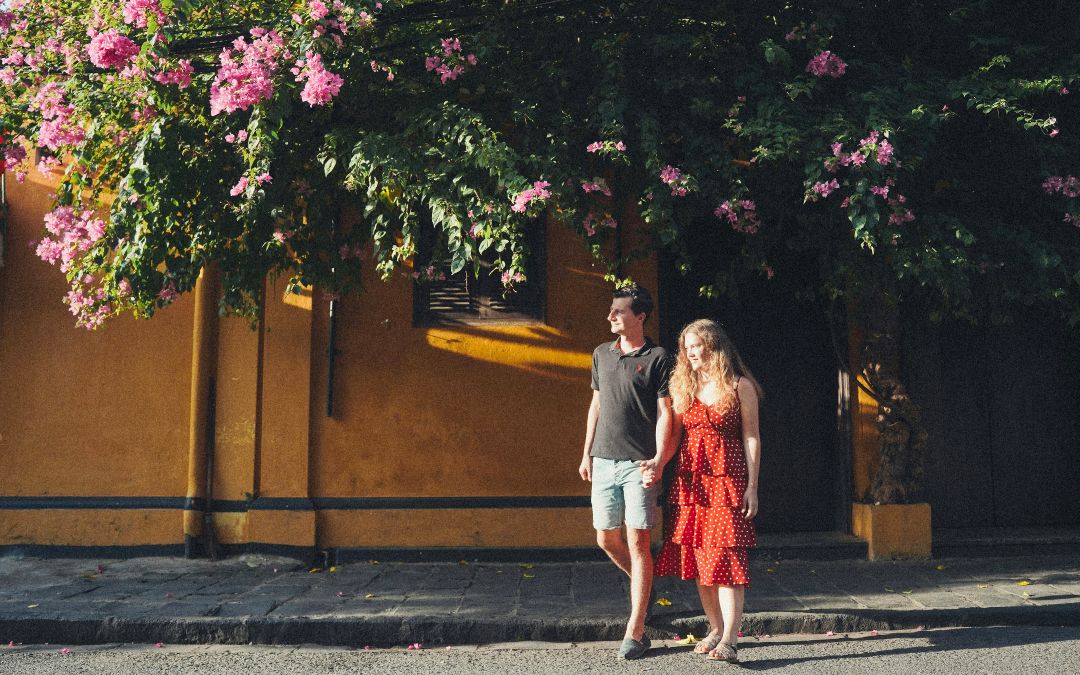
Hoi An truly shines as one of Asia’s most charming and safest towns! Its picturesque, lantern-lit streets and serene pedestrian-only Old Town create the perfect atmosphere for a delightful getaway.
With low traffic in the Old Town, you can explore with ease, and the kind, welcoming locals make sure visitors feel right at home.
Though Hoi An is a peaceful retreat day and night, just keep an eye out for tailoring scams and enthusiastic street vendors to ensure a smooth adventure!
Hue: Imperial Grandeur with a Calm Atmosphere
As Vietnam’s former imperial capital, Hue is rich in history and known for its slower rhythm of life.
This city is a great spot for culture seekers and older travelers, offering a relaxed vibe and fewer crowds. However, travelers should be aware of potential rainy-season flooding along the Perfume River, though safety concerns are generally minimal.
Ho Chi Minh City (Saigon): Bustling but Manageable
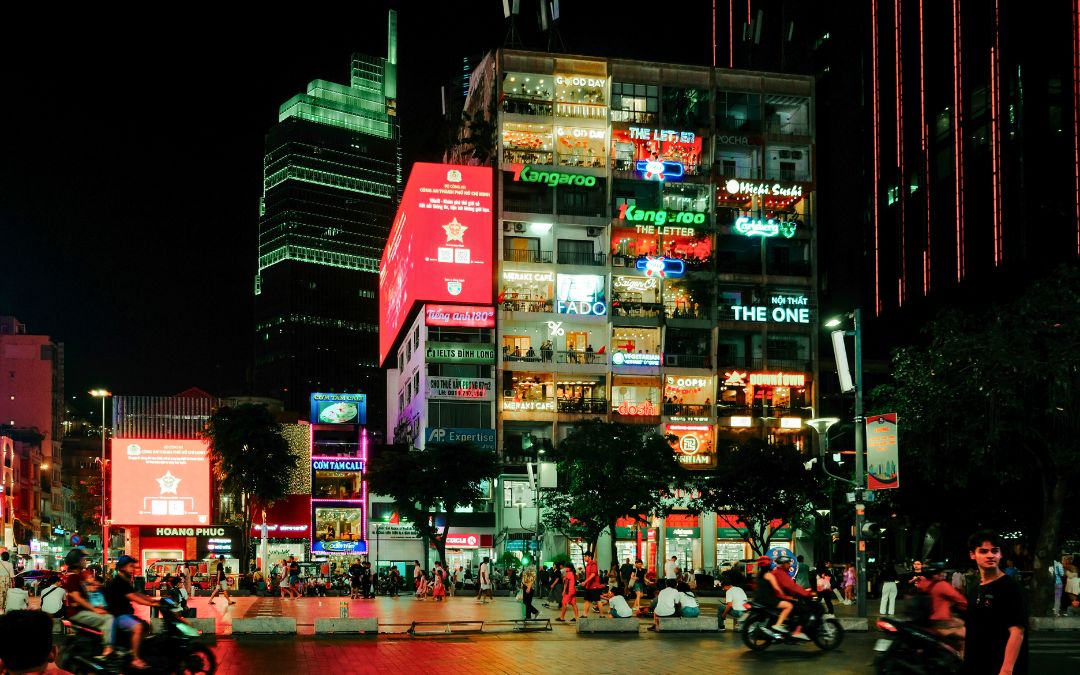
This is Vietnam’s largest and busiest metropolis. Although its vibrant energy can feel overwhelming, it remains a safe destination if you take some common-sense precautions.
The primary concern for visitors is petty theft, especially in crowded areas like Ben Thanh Market and the nightlife streets of District 1. However, violent crime is very rare.
Keep your phone secure, as motorbike snatching is the most frequently reported issue for tourists. Using Grab for transportation is safer and more reliable than hailing random taxis.
Sapa & the Northern Highlands
For adventurous travelers, Sapa and the surrounding mountains provide stunning rice terraces, ethnic minority villages, and excellent trekking opportunities. The rural communities in this area are welcoming and hospitable, with very little crime reported.
The weather in the mountains can change rapidly, so staying safe here is more about being prepared for the conditions—such as having rain gear and sturdy shoes—than about concerns related to crime.
Phu Quoc & Vietnam’s Islands
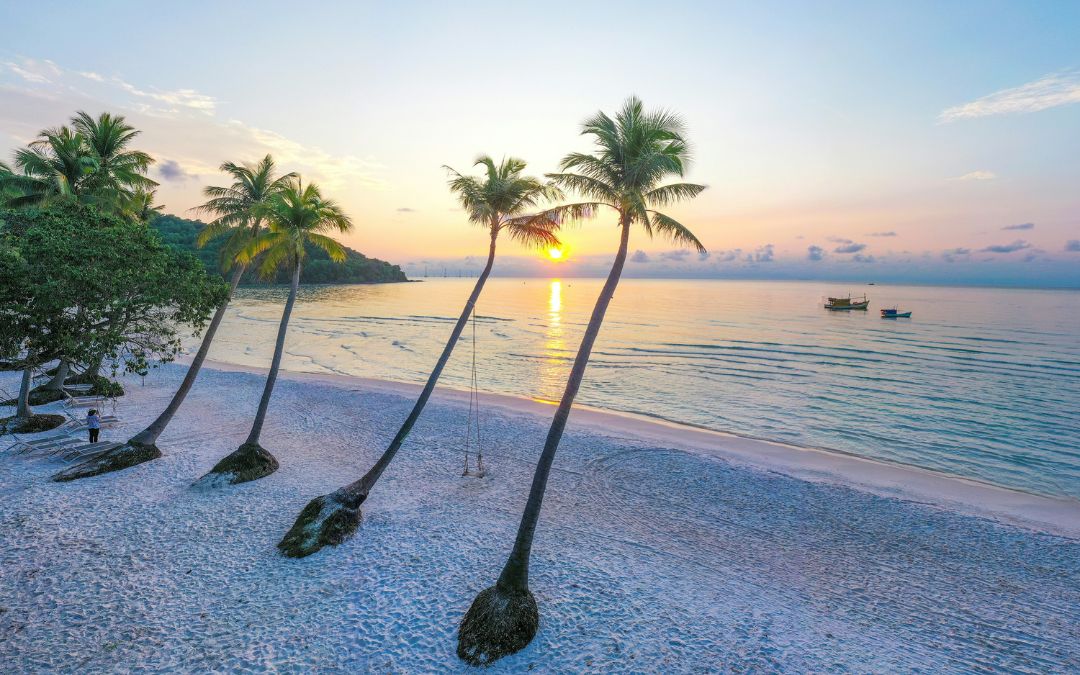
Vietnam’s stunning islands, especially Phu Quoc, are becoming the go-to destination for unforgettable beach getaways! Resorts focus on your safety, making it a peaceful, low-crime paradise.
For a worry-free experience, be mindful of traffic and water safety, like jellyfish and strong currents.
Pro tip: Stick to lifeguard-patrolled beaches and opt for tours with licensed operators for a fantastic adventure!
Central Highlands (Da Lat)
Da Lat, lovingly known as the “City of Eternal Spring,” boasts a delightful cool climate and breathtaking scenery that create a truly romantic setting.
It’s a safe haven! With its charming, quieter vibe, Da Lat is perfect for couples and families seeking tranquility.
A friendly tip: If you’re eager for adventure on the stunning mountain passes, just remember to ride carefully or consider hiring a local driver to make the most of your experience! Enjoy your journey in this enchanting destination!
Practical Safety Tips for a Smooth Trip
Even though Vietnam is one of the safest countries in Asia, a smooth journey comes from mixing awareness with preparation. Think of these tips as a practical safety net: they don’t dampen the fun, but they keep your travels stress-free.
Money & Belongings
- Use hotel safes: Keep passports, extra cash, and valuables stored in your accommodation. Carry only what you need for the day.
- Beware of pickpockets: Busy areas like markets, bus stations, and festivals are prime spots for petty theft. A crossbody bag or money belt is your best friend.
- Card safety: Credit cards are widely accepted in major cities, but rural areas remain cash-driven. Notify your bank before traveling to avoid transaction blocks.
Transport Smarts
- Motorbike caution: Renting a scooter is tempting, but traffic rules in Vietnam can feel “flexible.” Unless you’re an experienced rider, stick to taxis or ride-hailing apps like Grab or Xanh SM.
- Choose registered taxis: If you do hail one on the street, stick with trusted companies like Mai Linh or Vinasun.
- Night travel: Overnight buses and trains are safe, but keep your bag close. Opt for reputable operators to avoid last-minute hassles.
Health & Wellness
- Stay hydrated: Vietnam’s climate is humid, and dehydration sneaks up fast. Carry bottled or filtered water everywhere.
- Street food safety: Street eats are legendary, but choose busy stalls with high turnover. If locals are lining up, you’re in the right place.
- Medical care: Major cities like Hanoi, Da Nang, and Ho Chi Minh City have international-standard hospitals and clinics. Keep travel insurance details handy.
Scam Awareness
- Over-friendly offers: Be cautious of strangers offering “insider deals” or cheap tours. Many are legitimate, but a few inflate prices for tourists.
- Taxi/tourist traps: Confirm fares in advance or use metered taxis. For tours, book through registered companies or your hotel.
- Currency confusion: With so many zeros on Vietnamese banknotes, mix-ups are common. Double-check bills when paying and receiving change.
Staying Connected
- Local SIM card: Affordable and easy to set up at the airport. Having mobile data makes using Grab, Google Maps, and translation apps effortless.
- Emergency numbers: Save 113 (police), 115 (ambulance), and your embassy’s hotline. Chances are, you’ll never need them — but peace of mind is priceless.
Cultural Etiquette & Safety
- Respect local customs: Temples require modest dress, and shoes should be removed before entering homes. Respect earns you smiles and goodwill.
- Traffic flow: Crossing streets in Vietnam can feel like a sport. Walk slowly, steadily, and let scooters weave around you — sudden stops are riskier than moving forward.
Quick Checklist Before Heading Out
- Passport copy (digital + physical).
- Travel insurance confirmation.
- Local SIM card or eSIM for constant connection.
- Secure crossbody bag or anti-theft backpack.
- Reusable water bottle with filter.
Check out the Vietnam pre-departure essentials in this video:
FAQs
1. Is Vietnam Safe for Specific Types of Travelers?
- Families with Children: Family travel is common throughout Vietnam. Hotels, restaurants, and transportation services are accustomed to hosting families, and serious safety risks are minimal.
- Senior Travelers: Good road infrastructure in major cities, improving healthcare access, and private tour options make Vietnam suitable for senior travelers.
- Female Travelers: Vietnam is often cited as one of the safest Asian countries for women traveling alone. Street harassment levels are relatively low compared to many global destinations.
- Solo Travelers: Vietnam is widely considered safe for solo travelers, including first-time visitors to Asia. Public transport, domestic flights, and accommodations are reliable and affordable.
2. What is the biggest safety risk for travelers in Vietnam?
The most significant safety risk for travelers in Vietnam is road traffic accidents, particularly involving motorbikes and pedestrians at major intersections in large cities. This risk is highlighted more frequently than crime in official tourism safety guidance.
3. Is Vietnam safe for long-term stays or digital nomads?
Vietnam is considered safe for extended stays due to stable living conditions, affordable healthcare access in major cities, and low rates of serious crime against foreigners. Cities such as Da Nang and Ho Chi Minh City are popular among long-term visitors and digital nomads.
4. Are scams common in Vietnam?
Scams in Vietnam are generally low-level and non-violent, such as inflated taxi fares or tourist pricing in markets. Awareness and use of official services (licensed taxis, ride-hailing apps) significantly reduce risk.
5. Is Vietnam safe to visit at night?
Most tourist areas in Vietnam’s major cities—such as central Hanoi, Ho Chi Minh City, Da Nang, and Hoi An—are generally safe at night. Travelers are advised to remain cautious in crowded nightlife districts and to use licensed transport services. Violent incidents at night are uncommon.
Vietnam – Safest Country in Asia for Visitors
When tourists search for the safest country in Asia, Vietnam now ranks high on the list. Global safety indexes, international advisories, and on-the-ground traveler reviews all agree: safe travel in Vietnam is not just possible — it’s the norm.
If Vietnam has been on your list, there’s never been a better time to turn inspiration into action. At Asia Pioneer Travel, we craft tailor-made journeys that go beyond guidebooks — blending local insight, seamless logistics, and the peace of mind you deserve.
So start your Vietnam adventure today. Contact our travel designers to create a personalized itinerary that lets you explore confidently, experience deeply, and return home with stories worth sharing.

